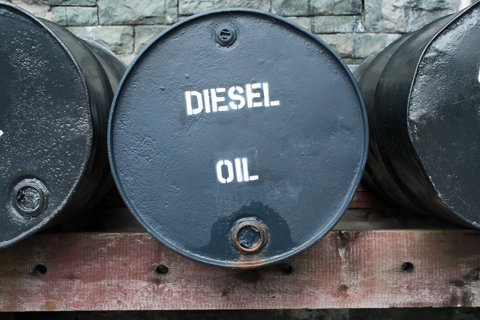Claims for Compensation
Claims for compensation due to illnesses or injuries sustained as a result of workplace exposure to diesel fumes are complex and can often be challenged on different grounds. For instance, an employer may argue that they have complied with the laws at the time or that the exposure to diesel fumes wasn’t sufficient to cause illness or increase the risk of developing illness or that there is another cause for your condition.
Furthermore, they may argue that the time limits for bringing such a claim have already expired.
It’s therefore very important to get expert legal advice before making a claim.
Exposed to Diesel Fumes at Work
There are, broadly speaking, 2 different ways in which workers can become exposed to diesel fumes. These are short term but significant exposure and long-term exposure which is often, but not always, at a lower level.
You may experience short term exposure to often concentrated diesel fumes if you were working at a fuel refinery, or were involved in work when diesel fuel was spilled, such as delivery of diesel fuel, or responding to a spillage of diesel fuel as part of your job. That sort of exposure would be concentrated and may cause irritation to the eyes or skin or short-term breathing problems such as an exacerbation of pre-existing asthma.
In these circumstances, an employer may be expected to ensure that all equipment which carried diesel fuel is regularly maintained, suitable for doing that job and is not faulty. They may also be expected to provide employees with masks or other protective equipment to try to reduce the risk of illness to members of staff.
Long term exposure to diesel fumes may occur if you work in logistics spending your day in the loading bay as lorries move in and out, or if you work in transportation or construction. Construction sites in particular may have a number of vehicles on them which run on diesel fuel and regularly emit significant quantities of diesel fumes.
Furthermore, if you’re employed in the vehicle manufacture or vehicle service industry, you may have cause to test diesel engines and be frequently exposed to diesel fumes as a result. If you work as a mechanic and there are regularly engines running and revving inside a building without sufficient ventilation or extraction.
That sort of exposure, over a long period of time, may cause respiratory illnesses such as asthma, Chronic Obstructive Pulmonary Disease (COPD) or even lung cancer. An employer in those circumstances might be expected to test the levels of diesel fumes in the area that you work in and provide extraction facilities to take away the fumes, as well as a ventilated area within which to work, and protective equipment such as masks or breathing protection.
What are Diesel Fumes?
Diesel fumes include diesel exhaust, which will contain particulate matter, such as soot, from the burning of the diesel fuel, as well as diesel fuel which has not yet burned.
Diesel fumes were classified as carcinogenic by the World Health Organisation in 2012, following studies that showed that someone who has been exposed to a significant amount of diesel fumes may have an increased risk of developing lung cancer. This means it’s vitally important an employer protects their workers from exposure to those fumes.
Where might exposure to diesel fumes occur?
Exposure to fumes in a workplace may take place where diesel-operated heavy vehicles are in use or in high-traffic work areas where vehicles may arrive or depart regularly, such as car parks, depots, or toll booths. Exposure is also common in construction sites and garages, as diesel-operated machinery may remain stationary while in use.
Employers' Responsibilities for Employee Well-being
Employers have a duty to assess the health risks that diesel emissions may pose to their employees and to take the necessary steps to prevent or adequately control exposure in the workplace. Control measures for fumes could include suitable extraction fans, enhanced ventilation, filters, catalytic converters, alterations to working methods to reduce exposure, and the provision of personal protective equipment (PPE). Employers are also under a duty to provide proper training and appropriate warnings to staff regarding potential workplace hazards.
It's important to note that, in addition to the respiratory risks of fumes, exposure to cold diesel can also have an adverse impact on an individual's health, as diesel fuel can potentially cause dermatitis when it comes into contact with the skin.

Choosing Simpson Millar for compensation claims offers several advantages:
Expertise: Simpson Millar is a reputable law firm with extensive experience in handling various types of compensation claims. Our legal professionals are well-versed in the intricacies of personal injury, medical negligence, employment, and other areas of law.
Client-Centric Approach: We are known for our client-centric approach, prioritising the needs and interests of clients. We offer personalised legal guidance and support throughout the claims process.
Legal Specialisation: Simpson Millar has a team of specialist solicitors, each with expertise in specific areas of law. This ensures that clients receive tailored advice and representation from lawyers who understand the nuances of your case.
Proven Track Record: We have a successful track record of securing compensation for clients. Our history of achieving favourable outcomes in a wide range of cases demonstrates our commitment to delivering excellent results for you.
Transparent Communication: Simpson Millar values open and transparent communication. Clients are kept informed about the progress of their cases at all times and are provided with clear explanations of legal processes.
No Win, No Fee: In many cases, Simpson Millar offers a "No Win, No Fee" arrangement, which means clients only pay legal fees if their claim is successful. This minimises financial risk for clients pursuing compensation.
Accessibility: The firm offers multiple channels for clients to reach out, including in-person consultations, phone calls, and online communication. This accessibility makes it easy for clients to get the support and advice they need.
National Coverage: Simpson Millar has a presence in multiple locations across the UK, making their legal services accessible to a wide range of clients.
Comprehensive Services: In addition to personal injury claims, Simpson Millar offers legal services in areas such as family law, employment law, immigration, and more. This comprehensive range of services means clients can turn to the firm for various legal needs.
Reputation: Simpson Millar's reputation for professionalism and dedication to client satisfaction makes it a trusted choice for those seeking compensation for their losses and injuries.
For free legal advice get in touch with our Industrial Disease Solicitors.











